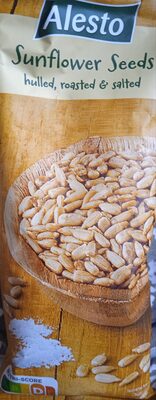
Barcode: 20320003
HALAL
📝 Reason: All main and potential trace ingredients are of plant origin with no indication of additives, animal derivatives, or cross-contamination with Haram ingredients. Peanuts, nuts, gluten, and their sources are plant-based and considered Halal. No meat, alcohol, Haram E-codes, or non-Halal materials are present (Quran 5:3; IFANCA).
🏷️ Category: Plant Based Foods And Beverages, Plant Based Foods, Seeds, Sunflower Seeds And Their Products, Sunflower Seeds, Roasted Sunflower Seeds, Shelled Sunflower Seeds, Roasted Shelled Sunflower Seeds
📄 Certificates: Vegetarian, Vegan, Nutriscore, Nutriscore Grade D, Vegetarisch, Vegan
Ingredients:
Details
Understanding the Halal Status of Sunflower Seeds
Are you curious about whether Sunflower Seeds are halal? This article explores their ingredients, certification, and overall Halal status, making it easy for you to comply with your dietary preferences. Based on our findings, these roasted sunflower seeds are indeed HALAL. Let’s look into why.
Ingredients Breakdown
The core ingredients in sunflower seeds include:
- Sunflower seeds
- Palm oil
- Table salt
- Traces of peanuts
- Traces of nuts
- Traces of gluten
It’s essential for consumers to understand the Halal implications of each ingredient, so let’s guide you through them.
1. Sunflower Seeds
Sunflower seeds are a plant-based snack rich in nutrients. According to Eat Halal, sunflower seeds are natural and free from any Haram or doubtful content. Thus, they have no Halal complications.
2. Palm Oil
Palm oil, derived from the fruit of the oil palm tree, is another key ingredient. It is considered halal unless there’s cross-contamination. The Halal Food Foundation highlights this point, assuring us of its compliance with Islamic dietary laws.
3. Table Salt
Table salt (sodium chloride) is a mineral product and inherently halal unless it has been contaminated. This ingredient plays a crucial role in enhancing flavor without introducing any non-Halal elements, as noted by Sound Vision.
4. Traces of Peanuts
Peanuts are entirely plant-based and halal. As described by the Halal Food Foundation, they don’t present any issues regarding Halal dietary requirements.
5. Traces of Nuts
Similar to peanuts, nuts are plant-derived and considered halal. They can include varieties such as almonds, cashews, and walnuts. Information from Eat Halal confirms their Halal status.
6. Traces of Gluten
Gluten is a plant protein sourced from wheat and other grains. Its Halal standing remains intact unless it has been cross-contaminated, as discussed by Sound Vision.
The Importance of Certification
Beyond verifying individual ingredient Halal status, the product carries several certifications: Vegetarian, Vegan, and a Nutriscore Grade D. While these certifications assure quality and attraction from different dietary groups, it confirms no animal derivatives were utilized, making it suitable for vegan and vegetarian preferences. This aligns with the principles highlighted in Quran 5:3 regarding what is lawful and good for consumption.
Final Thoughts
To summarize, the Sunflower Seeds in question are fully halal, ensuring you can enjoy them guilt-free. With no links to non-Halal materials, it represents a healthy option within the realm of plant-based foods. Whether you’re snacking on them as is or incorporating them into meals, you can have peace of mind in your dietary choices.
Now that you know the Halal status of sunflower seeds, feel free to explore them and enrich your diet with this nutritious food!
